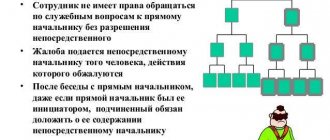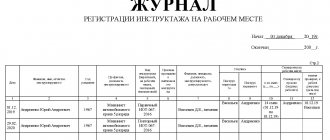Daily allowance for a business trip. Issues of accrual and payment
An employee of an organization who leaves to carry out an official assignment outside the place of permanent work (on a business trip) is compensated for the additional expenses incurred by him related to living outside his place of permanent residence, called daily allowances (Article 168 of the Labor Code of the Russian Federation, clause 11 of the Regulations on the specifics of sending employees to work business trip approved by Decree of the Government of the Russian Federation dated October 13, 2008 No. 749).
And for some reason there was a strong opinion that:
- daily allowances are paid to the employee so that he has something to eat on a business trip;
- The daily allowance should be the same for all employees of the organization.
However, this is not quite true.
Let's start with the fact that the costs of food, clothing and other personal needs of the employee are his personal problems. He receives a salary and decides where and how to spend it. The fact that he is on a business trip does not mean that his home office is obliged to feed him at this time. He is obliged to pay for travel to and from a business trip, accommodation and other documented expenses that he is forced to bear only because he performs work outside his place of residence, but he is not required to provide food.
Moreover, everyone has their own diet. For some, a bottle of kefir and half a loaf of bread is enough for the whole day, while others cannot imagine a lunch menu without a deflop with cacius seeds and crouton (not to be confused with crouton: after all, crouton cannot cost eight dollars, but crouton can).
Daily allowances are issued to compensate for those expenses that cannot be taken into account in advance and which cannot be documented.
For example, the cost of travel on public transport at the place of business trip, a chocolate bar, according to the good old tradition, given to the secretary of the boss with whom you will need to communicate, telephone conversations with your management on a personal mobile phone, etc., etc. , etc. It is very difficult to document all these expenses, and often even theoretically impossible. They would not arise in a permanent place of work, but the employee must be compensated for them. After all, they are clearly aimed at solving those tasks for which the employee was sent on a business trip.
The author still remembers the times when daily allowances were strictly regulated (and he himself went on business trips, receiving a daily allowance of 2 rubles 60 kopecks, and in the Arctic or in the Far East - 3 rubles 50 kopecks).
Currently, for profit tax purposes, the amount of daily allowance is determined only by the will of the organization (subclause 12, clause 1, article 264 of the Tax Code of the Russian Federation). There is no upper or lower limit.
But it should be taken into account that if, when traveling within the country, the daily allowance in an organization exceeds 700 rubles, and when traveling abroad - 2,500 rubles, then the excess amount increases the employee’s income subject to personal income tax (clause 1 of Article 217 of the Tax Code of the Russian Federation) .
In addition, for amounts exceeding this amount, it will be necessary to charge insurance premiums, with the exception of contributions for injuries (clause 2 of Article 422 of the Tax Code of the Russian Federation).
Daily allowances are paid for each day of a business trip, including weekends and non-working holidays, as well as for days en route, including during forced stops along the way.
If, under the terms of a business trip, an employee has the opportunity to return to his place of permanent residence every day, daily allowances are not paid (ibid.).
The question of the advisability of the daily return of an employee from the place of business trip to the place of permanent residence in each specific case is decided by the management of the organization, taking into account the distance, transport conditions, the nature of the task being performed, the need to create conditions for the employee to rest and other objective conditions.
The day of departure on a business trip is considered to be the date of departure of the vehicle - train, plane, bus, ship, etc. - from the place (locality) of permanent work (and not the employee’s place of residence) (clause 4 of the Regulations).
When leaving a vehicle before 24 hours inclusive, the day of departure is considered the current day, and from 00 hours and later - the next day.
If the train departs on 05.09. at 23.59, then the employee left on a business trip on 05.09. If the train departs 4 minutes later, that is, at 00.03, then this is already September 6 - the next day.
When a station, pier or airport is located outside a populated area, you should take into account the time required to travel to the station, pier or airport.
At the same time, let us once again draw attention to the fact that a locality is the location of the organization, and not the place of residence of the employee.
That is, according to clause 4 of the Regulations, an employee (even at three o’clock in the morning) on a business trip formally leaves his place of permanent work, and not from home. And the time required to get to the airport is calculated based on the route: “Work - Airport”, not “Home - Airport”.
Before boarding the plane at the airport, you must go through registration and personal search.
Check-in usually begins 2 hours before the departure time indicated on the ticket and closes 40 minutes before departure. Passengers who are late for check-in or boarding the plane will not be allowed to board the flight.
Consequently, to the time required to get to the airport (on average it’s about an hour), you need to add another hour to go through registration, security screening and waiting for the announcement to board the plane.
You can board the train three minutes before departure, as well as the bus.
If travel documents are not available, then the period of stay on a business trip can be confirmed by documents for renting residential premises at the place of business trip (clause 7 of the Regulations).
But if an employee cannot present documents of residence, then he must confirm the length of stay on a business trip with a memo or other document from the receiving party about his actual presence there (clause 7 of the Regulations).
Such a document can be drawn up in any form. But in essence, it is a duplicate of a travel certificate, the mandatory presence of which was abolished on January 8, 2015 by Decree of the Government of the Russian Federation dated December 29, 2014 No. 1595.
Therefore, in the author’s opinion, it is optimal to still issue him a travel certificate when sending an employee on a business trip. An example, as before, can be the T-10 form, approved by Resolution of the State Statistics Committee of Russia dated January 5, 2004 No. 1.
The day of arrival from a business trip is calculated in a similar manner, that is, according to a travel document, which also indicates the time of stay.
But here there is no time given to get from the airport to the place of permanent work.
And if the plane lands at 23.59 (according to the ticket), then this day should already be considered the last. Although getting there at night will probably be a little more difficult than in broad daylight. Although, if you really want to, you can theoretically get a certificate from the airport that the actual landing was at 00.07.
And for all days between these two dates, the employee must receive a daily allowance based on the amount established by the organization’s local regulations.
For one-day business trips within Russia, as mentioned above, daily allowances are not paid (clause 11 of Regulation No. 749).
In this regard, I recall an incident from the author’s personal practice (during his service as a senior inspector-auditor of one of the construction departments of the USSR Ministry of Defense). It may also be relevant today.
When conducting an audit of the financial and economic activities of one of the subordinate departments located in Leningrad (as St. Petersburg was then called), the advance report of an employee sent on a business trip to a higher department in Moscow was checked.
According to the travel certificate, the date of departure from the business trip is September 06, the date of arrival is September 08.
The employee was compensated for the cost of tickets and paid daily allowance for three days.
When checking the travel documents (tickets) attached to the report, it was established that the departure time of the Leningrad-Moscow train was September 7 at 00.07.
Departure time from Moscow is September 7 at 16.40, and arrival time in Leningrad is September 7 at 23.40.
Thus, the period of stay on a business trip is one day (September 7), and daily allowances are not subject to accrual or payment.
This violation was noted in the audit report, and the management of the department was ordered to recover from this employee the amount overpaid to him.
A similar situation is quite possible in modern conditions.
Now, according to the second established persistent misconception, that the amount of daily allowance should be equal for all employees, regardless of the region of assignment, position, length of service, gender preferences, etc.
He may be, but he shouldn't be .
Management may vary per diem depending on the region of travel. For example, for business trips to Vologda, the daily allowance will be higher than for those who went to Kerch (or vice versa).
In this situation, the organization is not obliged to prove to the tax authorities or anyone else the correctness of such actions.
In addition, no one forbids setting the amount of daily allowance depending on the position. That is, the daily allowance of the director or his deputies may exceed the daily allowance of department heads. And those, in turn, will have more than ordinary employees.
Or, again, vice versa. The highest daily allowances may go to the workhorses who bring profit to the enterprise, and not to those whose task is to guide and inspire.
But in this case, according to the author, as when establishing the official salary (tariff rate), the amount of daily allowance should be specified in the employment contract. And only three people will know about it: the manager, the employee and the accountant.
The author came to the conclusion that the amount of daily allowance can be differentiated, including depending on the position or other factors, back in 2008 (when the Federal Law of July 22, 2008 No. 158-FZ and the Decree of the Government of the Russian Federation of December 29 .2008 No. 1043 from 01/01/2009, the daily allowance standards established by the Decree of the Government of the Russian Federation dated 02/08/2002 No. 93 were abolished).
Then he was accused of calling for discrimination, violating the principle of social justice, and many other mortal sins.
But what kind of discrimination are we talking about?
No one is indignant (at least out loud) when two employees in the same positions and performing the same work with the same (well, according to one of them) results are given different salaries. And perhaps this difference can be quite significant. The same goes for daily allowances. The management knows better who bears what expenses on a business trip and to whom and how to reimburse them.
What rules for payment for business trips does Article 168 of the Labor Code of the Russian Federation contain?
Article 168 of the Labor Code of the Russian Federation declares the employer’s obligation to compensate the employee for expenses associated with a business trip:
- along the road in both directions;
- for renting housing;
- additional, arising due to being away from the place of permanent residence (daily allowance);
- others, which may include expenses for travel at the place of business travel, baggage transportation, and postage.
Despite the fact that the general rules for sending on a business trip are regulated at the state level (Article 166 of the Labor Code of the Russian Federation, Decree of the Government of the Russian Federation dated October 13, 2008 No. 749), the legislator leaves the establishment of a certain procedure, content of expenses and specific amounts of compensation for each position at the discretion of the employer.
How is travel time paid?
According to Article 167 of the Labor Code of the Russian Federation, payment for a business trip is made according to the average daily earnings for each day of absence from the workplace. Average daily income is calculated for the calendar year preceding the time of the business trip.
We suggest you read: Is it possible to avoid tax when exchanging a donated apartment with an additional payment?
If the employee has worked for less than a year, the average earnings for the time actually worked before the business trip are determined, even if this time is several days.
Having determined the billing period, the accountant removes from it those payments that the employee received while not working: disability benefits, vacation pay, days of downtime due to the fault of the employer, maternity leave, etc.
In other words, to calculate average earnings, only the income received for the time actually worked is taken into account.
As a result, in order to obtain the average daily earnings, payments received in the billing period for the time actually worked are divided by the number of days worked in the billing period.
By multiplying the resulting average daily earnings by the number of days of business trip, the earnings of the business traveler during the period of carrying out an official assignment outside the main place of work are determined.
If the average daily earnings exceed the usual daily earnings, the calculation of payment for business trips is based on the daily average.
If the average daily wage is lower than the usual daily wage, the issue of payment at a higher value is resolved by local management orders, as a rule, in favor of the employee.
Calculation of daily allowances
Daily allowances are funds paid to a business traveler for reasons of their sufficiency to meet his needs during the day. Documentary evidence of where the daily allowance was spent is not required. In the Russian Federation in 2021, the daily allowance for business trips within the country is 700 rubles, for foreign business trips - 2,500 rubles.
The Labor Code of the Russian Federation obliges the employer to pay the employee daily allowance for each day of a business trip, including weekends, holidays, days spent on travel, and time of forced delays along the way.
If the business trip is abroad, daily allowances are issued:
- in foreign currency at the exchange rate on the day of issue;
- for the last day of a foreign business trip - at the domestic Russian tariff - 700 rubles.
The last rule is not mandatory, but recommended by the Federal Tax Service, citing the fact that on the last day of the business trip the employee crosses the border of the Russian Federation.
When sending an employee on a business trip abroad, among other expenses, the employer reimburses:
- expenses for obtaining a passport, visa, etc.;
- mandatory consular fees;
- vehicle entry fees;
- costs for obtaining health insurance;
- other necessary payments and fees.
Transport costs, accommodation. Paid upon receipt of travel documents, hotel bills, receipts for baggage fees, etc.






